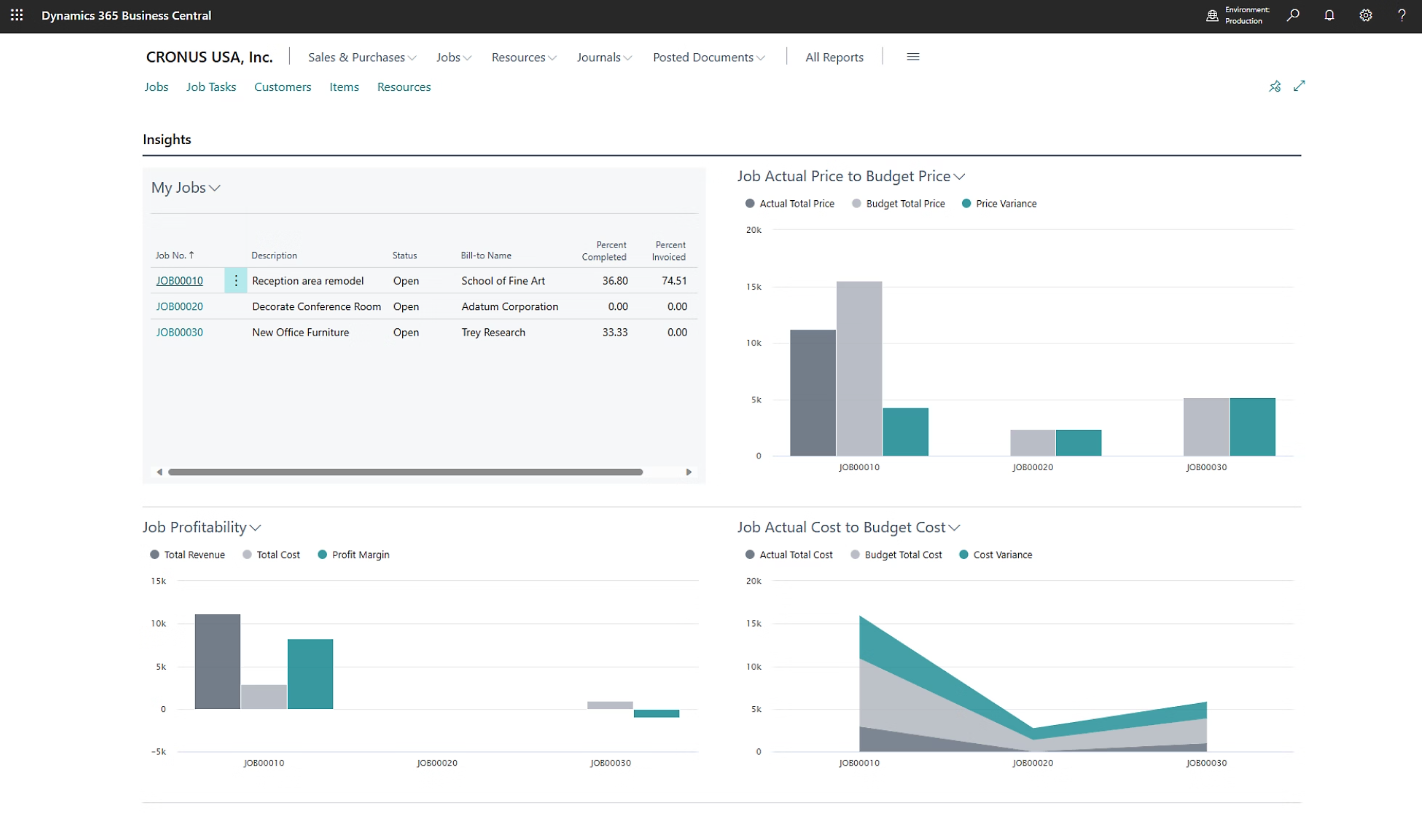Manufacturing, service, maintenance, and facilities management operators all depend on well-coordinated service delivery.
Whether it’s maintaining production machinery, supporting field technicians, managing on-site facilities, or coordinating maintenance teams, efficiency determines profitability. Manual systems and fragmented processes often lead to slow response times, inaccurate records, stock issues, and inconsistent billing.
Service management in Business Central addresses these challenges by providing a unified, data-driven platform for running service operations with precision. This blog explores how organisations across these sectors can enhance operational discipline, reduce administrative overhead, and strengthen customer experience through Business Central’s service management capabilities.
The value of service management in Business Central
Business Central provides a connected ecosystem where service delivery, scheduling, financials, inventory, and customer interactions converge. By removing silos, organisations gain a single version of the truth and a consistent flow from initial service request through to completion and invoicing.
Key benefits include:
• Improved visibility across service operations
• Faster dispatching and better resource utilisation
• Accurate job costing and tighter financial governance
• Full asset lifecycle tracking and warranty control
• Consistency across reactive, scheduled, and contract-based services
These advantages are particularly impactful for industries where asset uptime and service responsiveness directly influence customer retention and commercial performance.
Managing service items and complex equipment
The module enables organisations to define service items in detail, whether they relate to machinery, building systems, specialist installations, or multi-component equipment. This structure is beneficial for manufacturers providing after-sales support or facilities teams managing large building portfolios.
Teams can access full details of each asset, including its specifications, components, ownership, and linked contracts. Engineers gain a clear understanding of what they are dealing with before arriving on-site, reducing downtime and strengthening first-time-fix rates.
Tracking service history and warranties
Every activity recorded against a service item builds a complete operational history. This gives service managers valuable insight into recurring faults, failure patterns, and the effectiveness of maintenance strategies.
The system also manages warranties with accuracy. It ensures that billable and non-billable work is correctly identified, helping organisations avoid disputes, prevent revenue leakage, and maintain clarity across extended warranty programmes.
Controlling service orders and service workflows
Service orders are the operational centre of the module and support a wide range of scenarios, from reactive repairs and emergency callouts to routine inspections and long-term maintenance programmes. Workflows provide structure around approvals, execution, and billing, ensuring consistency across teams.
Businesses gain confidence that every service order moves through the right steps, that nothing is overlooked, and that completed work is captured correctly for financial reporting.

Resource and skills management
Matching the right engineer to the right job is essential for organisations working with specialist equipment or regulated environments. Business Central’s resource management tools make this easier by giving schedulers full visibility of engineer availability and technical skills.
Schedulers can quickly identify suitable personnel, avoid over-allocation, and improve operational flow across multiple sites or regions.
Planning and dispatching service tasks
Efficient dispatching is essential for sectors where timing is critical, such as facilities management and high-volume maintenance. Business Central provides a structured planning board showing open orders, engineer assignments, and capacity.
Key planning advantages include:
• Simple reassignment of jobs when cancellations or urgent needs arise
• Clear visibility of operational load throughout the day
• Improved SLA management
• Fully aligned communication across teams
This reduces pressure on coordinators and enhances the responsiveness of field teams.
Service contracts and recurring maintenance programmes
Long-term service contracts provide stability and predictable revenue. Business Central can simplify the entire lifecycle of these agreements with tools that manage pricing, inclusions, renewals, and SLA commitments.
Organisations can automatically generate recurring service orders, apply amendments at scale, and track profitability across contracts. This is particularly effective for preventative maintenance programmes and multi-site facilities management arrangements.
Parts management and integrated inventory control
Reliable access to the right parts dramatically improves first-time-fix rates. By linking the service module directly with inventory and procurement, Business Central removes the guesswork from parts availability.
This integration supports:
• Real-time updates when engineers consume stock
• Automated reordering for critical items
• Accurate tracking of serialised and regulated components
Maintenance and service teams gain greater confidence in their ability to complete work during the first visit.
Service pricing, cost control, and billing accuracy
Business Central captures labour, materials, expenses, and contract adjustments within each service order. This ensures invoices reflect the true cost of work and remain consistent with contractual terms.
Finance teams benefit from improved reporting around profitability, engineer utilisation, and revenue forecasting. Leaders can assess performance at granular levels, enabling sharper commercial decisions.
Analytics and reporting
Built-in dashboards and Power BI integration allow organisations to analyse service performance across assets, regions, and customer types. This supports continuous improvement programmes by identifying inefficiencies and emerging trends.
Common KPIs to monitor include:
• First-time-fix performance
• SLA compliance
• Asset failure patterns
• Contract profitability
These insights help service leaders refine strategies and strengthen long-term service delivery.
Driving operational efficiency with an integrated platform
Service management in Business Central provides a connected, structured, and financially robust model for managing service operations. Whether you’re overseeing machinery maintenance, coordinating service engineers, or managing complex assets across a building estate, this unified platform helps teams work smarter and scale confidently.
Looking to enhance your service operations, streamline contract delivery, or bring more discipline to your maintenance processes? Our specialists can help you design, implement, and optimise service management in Business Central. Get in touch:





